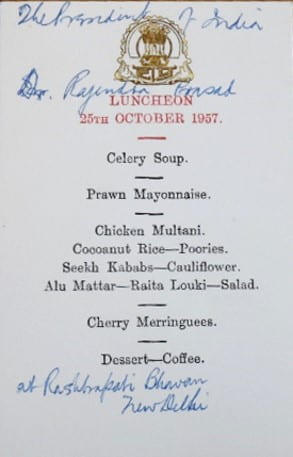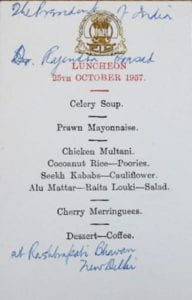
Sir Peter MacCallum: The man behind the monument
By Neville Yeomans
This post was written as part of the graduate course Digital Humanities MULT900056. Neville Yeomans is currently undertaking a Doctor of Philosophy in the School of Historical and Philosophical Studies at the University of Melbourne. His thesis examines the history of Australia’s medical immigrants since colonisation.
Melbournians view the hospital and institute that bears MacCallum’s name [1] with a mixture of fondness and apprehension – after all, a cancer diagnosis is a frightening thing. But most of us know little about the man himself.
His more public achievements have been well documented [2]. He was born a Scottish immigrant whose many roles included professor of Pathology at University of Melbourne, dean of its medical faculty and Chair of the Australian Red Cross Society. But the contributions that particularly led to the establishment of the hospital with his name included his eighteen years (1946-63) as chair of the Anti-Cancer Council of Victoria.
The eight volumes of his papers in the university’s archives give a more intimate picture of the man [3]. MacCallum seems to have been something of a hoarder. Handwritten versions of his public lectures sit side by side with later typewritten versions with numerous corrections and pasted insertions. In these days of word-processors, few keep such a detailed audit trail. Why he kept all those drafts we can only guess – perhaps with an eye to history, more likely because he couldn’t bear to throw things away. One whole folder in the University of Melbourne Archives (1975.0042, Unit 2, folder 16) was devoted to car parking, and included a book on “Parking Programs in the USA”. Was this idle fascination? Was he working on a project for parking in Melbourne? The archive holds its tongue!
Probably less known among his interests and contributions were his travels to observe medicine and medical education in India, China and Japan. The first to India was in 1951-2, departing by ship on Christmas Eve. He had arrived within five years of the partition of India and his notes show his concern and sorrow for the anguish of the many displaced persons which it produced [4]. He returned in 1957, and was obviously feted during this trip, since among the memorabilia he kept were invitations and even menus from some of the functions he attended – one with the President of India.
Image: Annotated menu from a luncheon, India, 1957, Sir Peter MacCallum Collection, 1975.0042
The 1957 trip was as part of a delegation examining medical education in China. Again, he kept a detailed diary, arriving via Hong Kong. The Chinese Premier (Chou En-Lai) said at a reception, “We hope that our foreign comrades and friends … will give us criticism and counsel … so that we may learn and benefit thereby.” This was of course a time when Australia did not diplomatically recognise China – eight years after the Communist Revolution and before Mao Zedong’s education program for China’s ‘barefoot doctors’ [5].
As in India, MacCallum kept memorabilia of his visit to China and Japan: copies of invitations, a donated medical paper in Mandarin, maps and brochures of cultural sites, and even the ticket for his transfer from Tokyo airport. This was a fastidious man.
MacCallum was also an internationalist and a humanitarian. He ended a lecture in Melbourne after his Indian trip by reminding his audience that Rudyard Kipling was often quoted as saying “East is East and West is West, and Never the Twain shall meet.” But Kipling had actually closed that gulf in the remainder of his verse [6]:
Till Earth and Sky stand presently at God’s great Judgment Seat;
But there is neither East nor West, Border, nor Breed, nor Birth,
When two strong men stand face to face though they come from the ends of the earth!
References
[1] The Peter MacCallum Hospital began in 1950. It is now incorporated within the Victorian Comprehensive Cancer Centre in the medical precinct adjacent to the University of Melbourne medical school, but continues its name as the Peter MacCallum Cancer Centre: (https://www.petermac.org/)
[2] See Sir Peter MacCallum’s entry in the Australian Dictionary of Biography: http://adb.anu.edu.au/biography/maccallum-sir-peter-10905
[3] University of Melbourne Archives, 1975.0042 MacCallum, Peter_Prof.Sir
[4] For a brief history of the partition, see https://learn.culturalindia.net/partition-of-india.html
[5] A Western account of the barefoot doctors’ program, by the then editor of the British Medical Journal, is available at https://www.bmj.com/content/bmj/2/5916/429.full.pdf
[6] Kipling, Rudyard. “The Ballad of East and West.” (1899), first published in The Pioneer, 2 December 1889 and available at http://www.kiplingsociety.co.uk/poems_eastwest.htm. MacCallum left out much of Kipling’s punctuation in the version typed at the end of his speech – though, to be fair, he intended simply to read it.

Leave a Reply